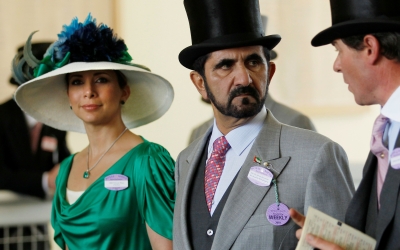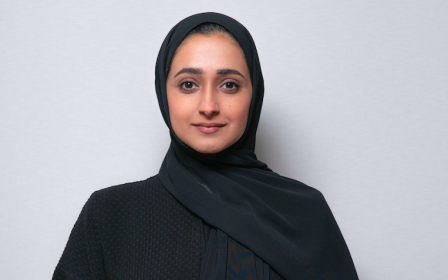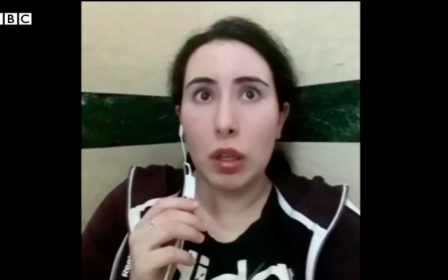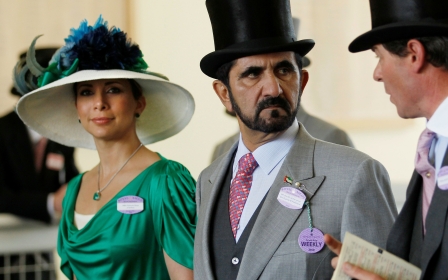Princess Haya: Dubai ruler hacked ex-wife's phone using NSO Pegasus spyware, says UK high court
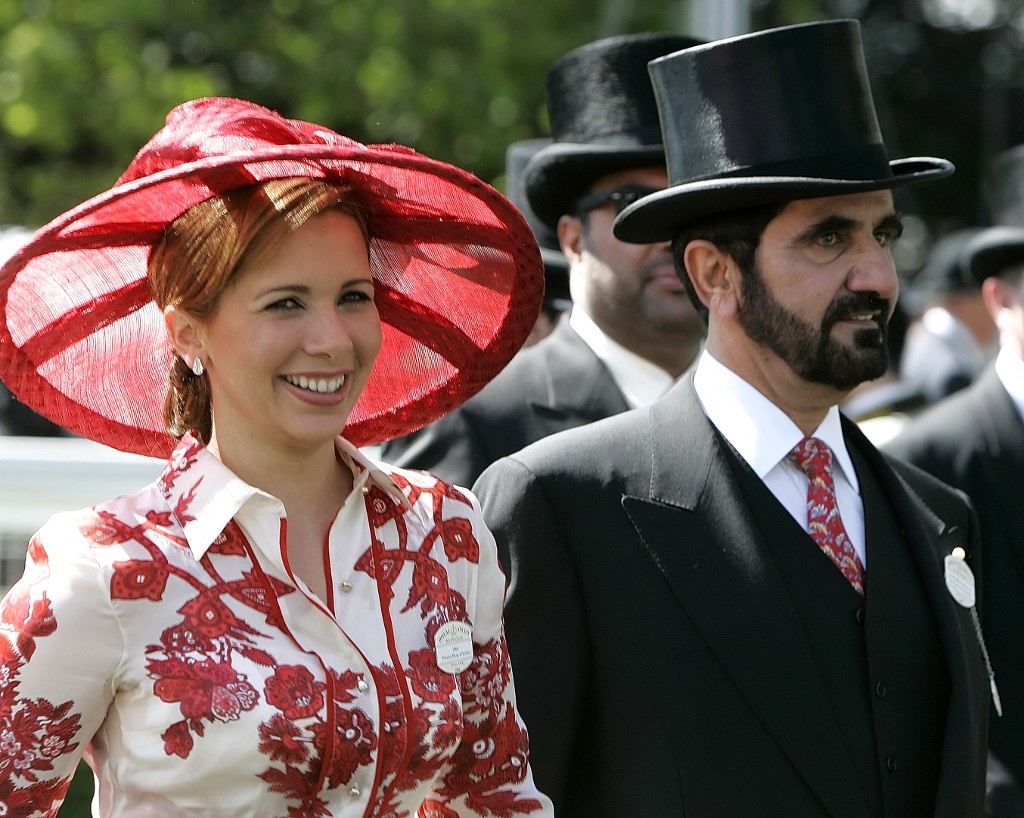
The ruler of Dubai and prime minister of the United Arab Emirates hacked the phone of his ex-wife Princess Haya and five of her associates using NSO Group’s controversial Pegasus spyware, a senior British high court judge has ruled.
The findings were shared with the Guardian and other news organisations on Wednesday, although the judgement dates back to 5 May this year.
The hacking took place while Princess Haya and Sheikh Mohammed were involved in court proceedings in London concerning the custody of their children.
In his judgment, Sir Andrew McFarlane, president of the UK High Court's family division, criticised Sheikh Mohammed in the strongest terms.
“The findings represent a total abuse of trust, and indeed an abuse of power, to a significant extent,” he said.
“I wish to make it plain that I regard the findings that I have now made to be of the utmost seriousness in the context of the children’s welfare.
"They may well have a profound impact upon the ability of the mother and of the court to trust him with any but the most minimal and secure arrangements for contact with his children in the future.”
Haya’s phone was hacked 11 times in July and August last year with Sheikh Mohammed’s “express or implied authority”, the Guardian revealed.
Two of Haya's lawyers were also hacked, including Lady Shackleton, a member of the House of Lords.
In March, MacFarlane ruled that Sheikh Mohammed was keeping his daughters Latifa and Shamsa captive and has conducted a campaign of harassment against Princess Haya.
Sheikh Mohammed was also found to have organised the kidnapping of Latifa, who attempted to flee Dubai in 2018, and her older sister Shamsa, who in 2000 temporarily escaped her family in the UK.
Pegasus helped capture runaway princess
In July, the Washington Post revealed that Latifa, the runaway princess whose detention by her father, Sheikh Mohammed, caused a worldwide scandal, was captured in 2018 using Pegasus spyware.
Phone numbers belonging to friends and associates of Princess Latifa were added to the list of numbers to be targeted for surveillance by the software provided by the Israeli NSO Group.
The numbers were added in February 2018 in the hours and days after the princess escaped Dubai with the help of her friend Tiina Jauhiainen, a Finnish capoeira instructor.
Eight days later, when she had travelled as far as India's Malabar coast, Indian, then Emirati forces violently boarded her boat and returned her to Dubai.
In August, a forensic analysis carried out by Amnesty International revealed that David Haigh, a British human rights campaigner who was working to help release Princess Latifa from detention, had his mobile phone hacked by Pegasus spyware on 3 and 4 August 2020.
Haigh's iPhone 11 was infiltrated by Pegasus software, which is manufactured by Israel's NSO Group, in an attack suspected to have been ordered by Dubai.
Amnesty International, Forbidden Stories, and a group of international media organisations have alleged the spyware was used in hacks of smartphones belonging to journalists, officials, human rights activists, and political leaders.
The investigative group says they have acquired a list of 50,000 phone numbers that appear to be targets identified by the Israeli company's clients to be spied upon using Pegasus.
Following the leak, the UK government said that it had repeatedly complained to the Israeli government about the use of Pegasus.
Middle East Eye propose une couverture et une analyse indépendantes et incomparables du Moyen-Orient, de l’Afrique du Nord et d’autres régions du monde. Pour en savoir plus sur la reprise de ce contenu et les frais qui s’appliquent, veuillez remplir ce formulaire [en anglais]. Pour en savoir plus sur MEE, cliquez ici [en anglais].


